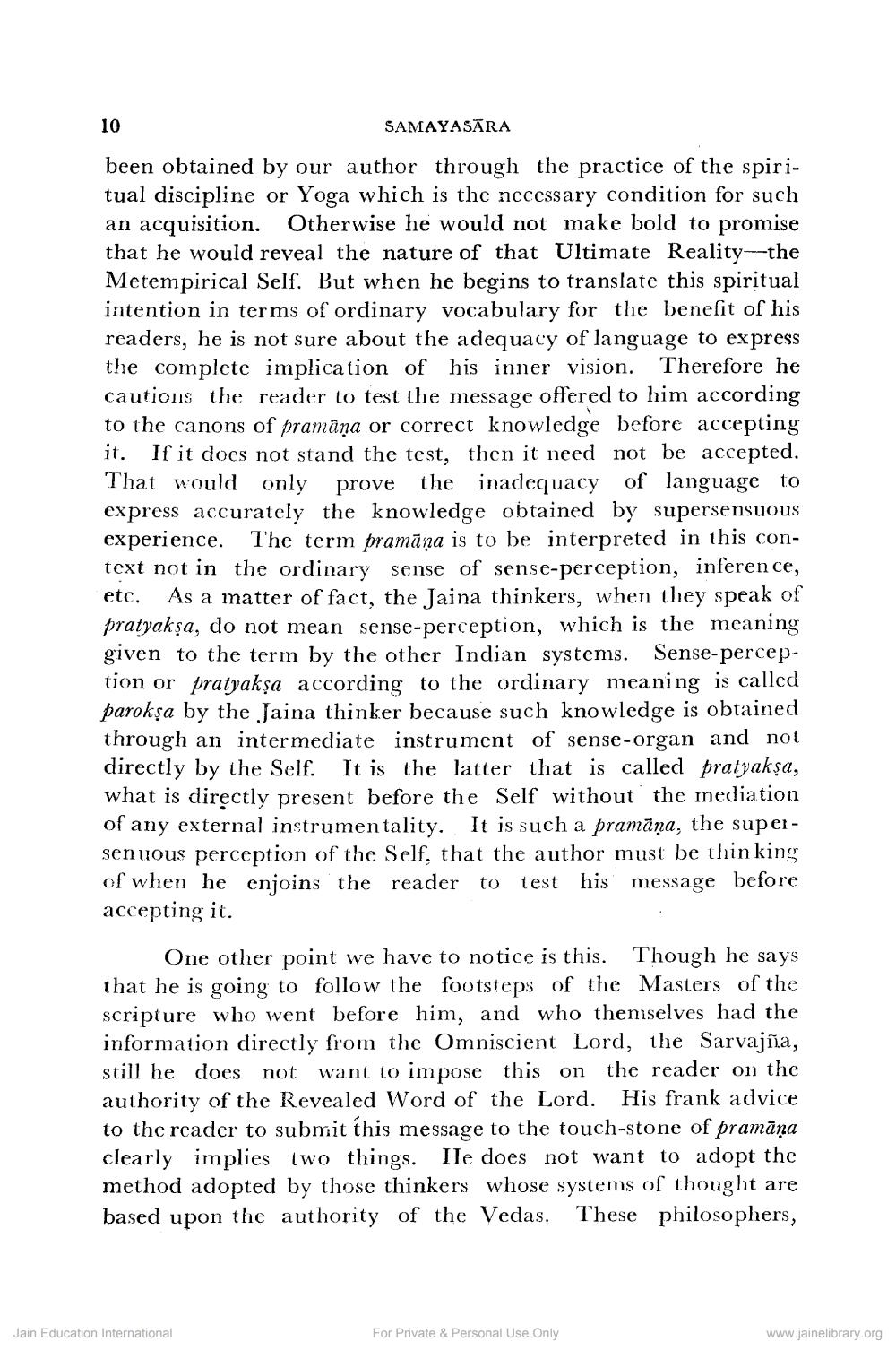________________
10
SAMAYASĀRA
been obtained by our author through the practice of the spiritual discipline or Yoga which is the necessary condition for such an acquisition. Otherwise he would not make bold to promise that he would reveal the nature of that Ultimate Reality--the Metempirical Self. But when he begins to translate this spiritual intention in terms of ordinary vocabulary for the benefit of his readers, he is not sure about the adequacy of language to express the complete implication of his inner vision. Therefore he cautions the reader to test the message offered to him according to the canons of pramāņa or correct knowledge before accepting it. If it does not stand the test, then it need not be accepted. That would only prove the inadequacy of language to express accurately the knowledge obtained by supersensuous experience. The term pramāṇa is to be interpreted in this context not in the ordinary sense of sense-perception, inference, etc. As a matter of fact, the Jaina thinkers, when they speak of pratyakşa, do not mean sense-perception, which is the meaning given to the term by the other Indian systems. Sense-perception or pratyakşa according to the ordinary meaning is called paroksa by the Jaina thinker because such knowledge is obtained through an intermediate instrument of sense-organ and not directly by the Self. It is the latter that is called pratyakşa, what is directly present before the Self without the mediation of any external instrumentality. It is such a pramāna, the supersenuous perception of the Self, that the author must be thinking of when he enjoins the reader to test his message before accepting it.
One other point we have to notice is this. Though he says that he is going to follow the footsteps of the Masters of the scripture who went before him, and who theniselves had the information directly from the Omniscient Lord, the Sarvajña, still he does not want to impose this on the reader on the authority of the Revealed Word of the Lord. His frank advice to the reader to submit this message to the touch-stone of pramāna clearly implies two things. He does not want to adopt the method adopted by those thinkers whose systems of thought are based upon the authority of the Vedas. These philosophers,
Jain Education International
For Private & Personal Use Only
www.jainelibrary.org




